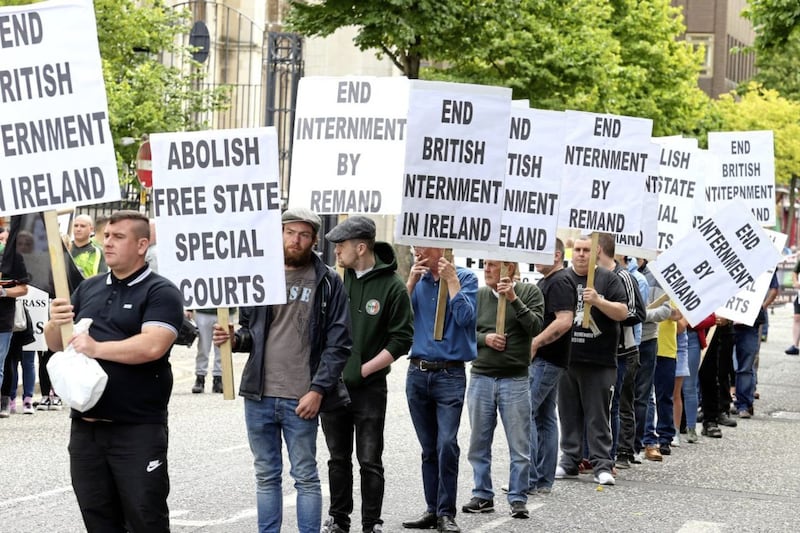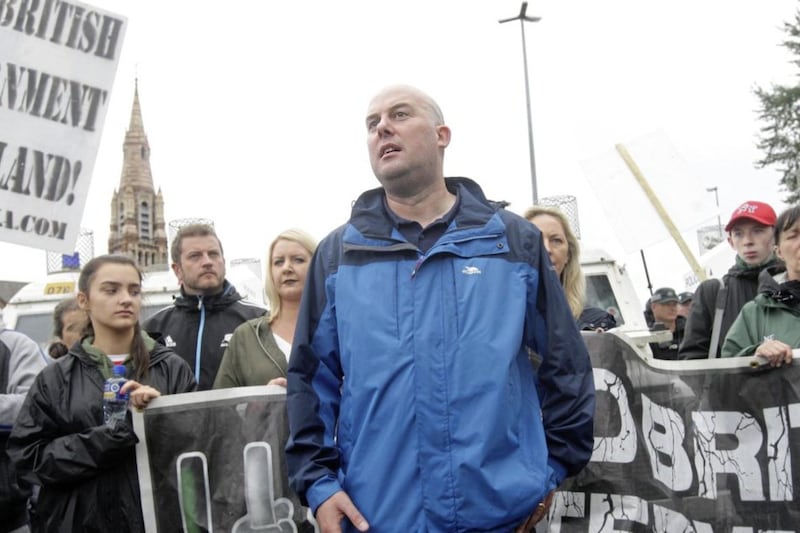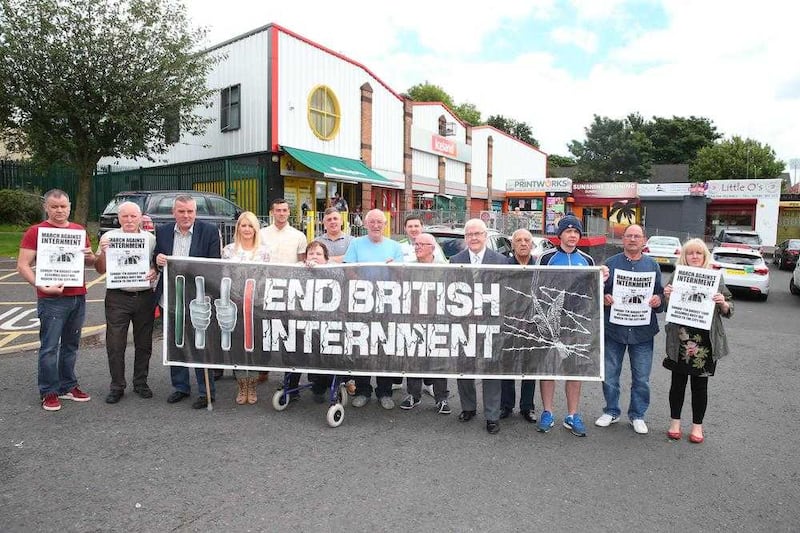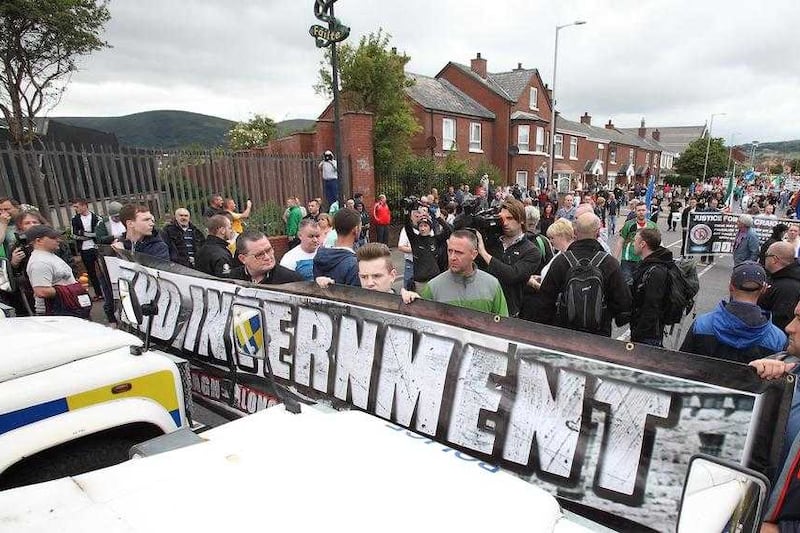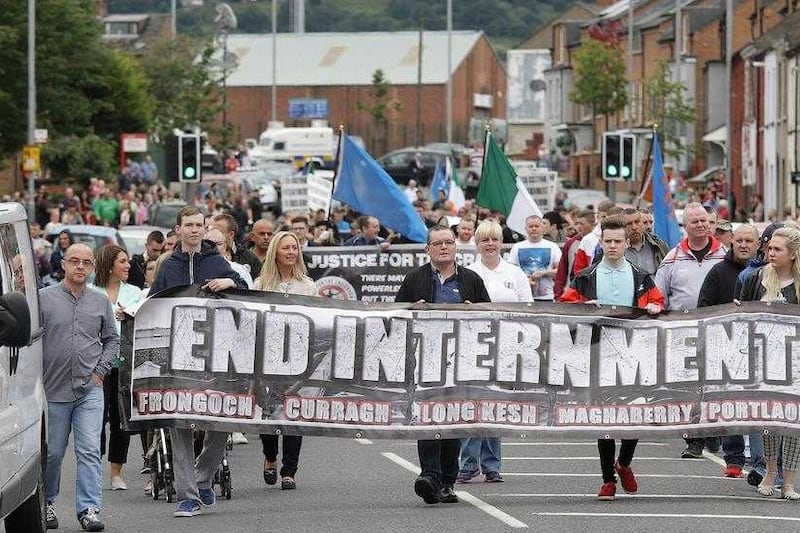A REPUBLICAN anti-internment parade due to take place next month has been banned from Belfast City Centre by the Parades Commission.
Up to 5,000 people and at least four bands had been expected to take part in the annual Anti-Internment League (AIL) march on Sunday, August 7.
The parade has been organised to mark the 45th anniversary of the introduction of internment in 1971, which saw hundreds of nationalists jailed without charge.
The Parades Commission last night ruled that the march will not be allowed to pass the junction of Divis Street and Barrack Street.
Defending its decision, the Parades Commission said there had been a "lack of assurances" from organisers about the proposed march and a "refusal to engage with the commission".
A spokeswoman added: "The commission has addressed in its decision the disproportionate, serious and prolonged impacts the parade had upon the human rights of others.
"It has reflected the adverse impacts of the parade upon community relations and community life, and the extremely high risks of public disorder."
Organisers say the parade is intended to highlight claims that republicans have been 'interned by remand' in recent years.
Unlike previous years loyalists have not applied to the Parades Commission to hold a protest, although some were planning to gather Belfast City Hall.
In the last three years, AIL had sought permission to march from north Belfast to the city centre and on to west Belfast.
This year’s parade was expected to leave Andersonstown in west Belfast before moving down Castle Street and onto Donegall Place at its junction with Royal Avenue.
The procession would than have moved to Belfast City Hall for a rally which was due to finished at 1.30pm.
It is expected that the PSNI will now put a major security operation in place to uphold the commission’s determination.
A parade organised by the West Belfast Festival involving up to 2,000 participants and 5,000 supporters is due to start at nearby Conway Street at 1pm.
In its determination the commission accused organisers of deliberately breaching a “timing condition” placed on last year’s march which resulted in “public disorder” in the Oldpark area.
The commission also said organisers had failed to engage with them.
“The object of this route restriction is to mitigate the parade’s potential for public disorder, its adverse impacts upon community relations and upon the life of the community,” it said.
The commission said the business community had objected to the parade on the grounds “it will have a negative impact on the city centre.”
The ban on the republican parade comes just weeks after a large loyalist parade marched through the city centre last month.
Up to 15,000 loyalists and 38 bands took part in the parade to mark the centenary of World War I.
The full statement from the Parades Commission follows:
'The Commission has decided that it is necessary to estrict the route of the Anti-Internment League away from the city centre to Barrack Street.
'The Commission has always recognised the city centre as a neutral space that should be accessible for all and therefore this decision has not been taken lightly.
'The deliberate breach of the timing condition, resulting in public disorder by the parade participants and/or supporters last year, has increased significantly the risks of the proposed parade this year as has the organiser’s refusal to engage with the Commission.
The Commission has not received some essential information, specifically requested, about the proposed parade including the dispersal plans at the City Hall.
'The Commission has received no assurances about any aspect of the parade.
'The lack of assurances about the proposed parade raises serious concerns about the organiser’s genuine intention to hold a peaceful and lawful event this year.
'The Commission has addressed in its decision the disproportionate, serious and prolonged impacts the parade had upon the human rights of others.
'It has reflected the adverse impacts of the parade upon community relations and community life, and the extremely high risks of public disorder.'



